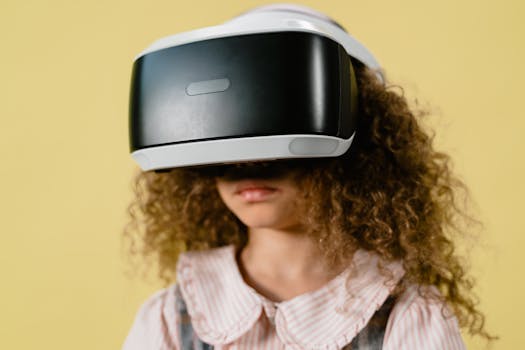
The Future of Education: What 2025 Holds
Introduction
The Future of Education: What 2025 Holds is an exciting and rapidly evolving field, with technological advancements and innovative approaches transforming the way we learn. As we look to the future, it’s essential to consider the trends, challenges, and opportunities that will shape the education sector in the years to come.
Trends in Education
Several trends are expected to shape the future of education, including personalized learning, artificial intelligence, virtual and augmented reality, and gamification. These trends will not only enhance the learning experience but also provide students with the skills and knowledge required to succeed in an increasingly complex and interconnected world.
Personalized Learning
Personalized learning is an approach that tailors the learning experience to individual students’ needs, abilities, and learning styles. This approach uses data and analytics to identify areas where students need extra support or challenge, and provides targeted interventions to help them achieve their full potential.
Artificial Intelligence
Artificial intelligence (AI) is being used in education to develop adaptive learning systems, chatbots, and virtual teaching assistants. AI-powered systems can help students with tasks such as homework, research, and language learning, freeing up teachers to focus on more complex and creative tasks.
Virtual and Augmented Reality
Virtual and augmented reality (VR/AR) technologies are being used in education to create immersive and interactive learning experiences. VR/AR can simulate real-world environments, allowing students to explore and interact with complex systems and concepts in a safe and controlled way.
Gamification
Gamification is the use of game design elements and mechanics in non-game contexts, such as education. Gamification can make learning more engaging, fun, and motivating, and can help students develop skills such as problem-solving, critical thinking, and collaboration.
Challenges in Education
Despite the many exciting trends and innovations in education, there are also several challenges that need to be addressed. These include issues related to equity, access, and quality, as well as the need for teachers and educators to develop new skills and competencies.
Equity and Access
One of the major challenges facing education is ensuring that all students have equal access to high-quality learning opportunities, regardless of their background, location, or socioeconomic status. This requires addressing issues such as poverty, inequality, and lack of infrastructure.
Teacher Development
Teachers and educators need to develop new skills and competencies to effectively integrate technology and innovative approaches into their teaching practices. This requires ongoing professional development, support, and training.
Opportunities in Education
Despite the challenges, there are many opportunities in education, including the potential for technology to increase access, improve quality, and reduce costs. There are also opportunities for innovation, entrepreneurship, and collaboration, as well as for developing new business models and revenue streams.
Online and Blended Learning
Online and blended learning can increase access to education, particularly for students who are remote, disadvantaged, or have special needs. Online platforms and courses can also provide high-quality learning opportunities at a lower cost than traditional brick-and-mortar institutions.
Innovation and Entrepreneurship
Education can foster innovation and entrepreneurship by providing students with the skills, knowledge, and mindset required to develop new ideas, products, and services. This can be achieved through programs and courses that focus on design thinking, prototyping, and experimentation.
Conclusion
The future of education is exciting and rapidly evolving, with technological advancements and innovative approaches transforming the way we learn. As we look to the future, it’s essential to consider the trends, challenges, and opportunities that will shape the education sector in the years to come. By working together, we can create a more equitable, accessible, and effective education system that prepares students for success in the 21st century.


